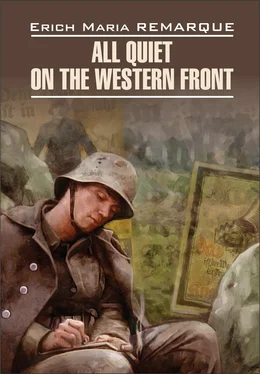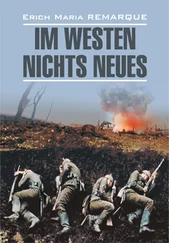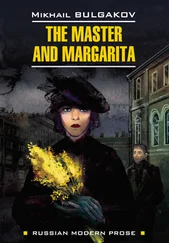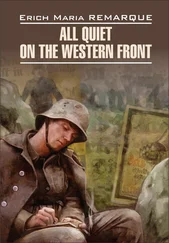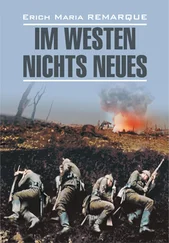Remarque wrote about a dozen novels in all, and several have to do with the theme of war and its aftermath, although none had quite the success of All Quiet on the Western Front. Many of them were filmed, sometimes with a script by Remarque himself, and occasionally with Remarque acting in them. The war novel was turned into a landmark of cinema history in 1930 by director Lewis Milestone and remains a classic; it enraged the Nazis, and Goebbels organized the disruption of showings of it in Berlin. A more recent colour version (1979) is somewhat less successful.
Remarque’s other novels include a sequel to All Quiet on the Western Front called The Road Back (1931), which has a first-person narrator who is almost Paul Baumer brought back to life. Three Comrades (1937), which had to be published outside Germany, is set in the years between the wars, and after the Second World War he set another vividly imagined novel, The Spark of Life (1952), in a concentration camp. A novel of the Second World War which has quite a lot in common with All Quiet on the Western Front, and which was written in America, was published in 1954 in English as A Time to Love and a Time to Die, although the German tide actually echoes more accurately the biblical phrase, ‘a time to live and a time to die’. Set partly on the eastern front in the early 1940s, much of the action takes place in Germany under the bombing. It is a love story as well as a picture of war, and there is, running through it, the motif of the inextinguishable spark of life in man which is present in All Quiet on the Western Front, and which was used as a tide for the concentration camp novel. War and its results, the sufferings of ordinary people, the plight of refugees, but also the doggedness of that spark of life – these are Remarque’s main themes, and it is time, perhaps, for a large-scale reconsideration of his work as a whole, something which is underway already in Germany in the setting up of a research centre in Remarque’s home town of Osnabruck.
All Quiet on the Western Front is not a memoir, though of course Remarque drew on some of his own experiences in the war, and it is not a piece of historical documentation from 1918, though it is sometimes cited as if it were, but a novel. Remarque prefaces the work with a short statement declaring it to be an account of ‘a generation that was destroyed by the war – even those of it who survived the shelling’, and although the death of the narrator is reported objectively and briefly at the end of the book, the bulk of it portrays the war through the eyes of one soldier, albeit a sensitive one, the nineteen-year-old Paul Baumer. There are few military historical details, no heroics, and the real enemy is death. We hardly ever see the other side, and the very word ‘enemy’ is rare; Baumer refers to ‘the others’, or to ‘those over there’. And there is no expressly political dimension. Left-wing critics often felt that Remarque had failed by not having his soldiers’ revolt openly. But the soldiers in the trenches did not, by and large, mutiny or abandon their posts, and the only one in the novel who does so, Detering, goes home to Germany rather than desert to Holland and freedom.
Much has been made of the idea of comradeship in the novel, as something positive coming out of the war. This again is deceptive – it is in fact no more than an artificial solidarity in the face of adversity, though of course real friendships do arise, as is possible anywhere. Remarque made clear in The Road Back how quickly the artificial comradeship of the war crumbled away as returning soldiers settled back into different (and not always justifiable) social levels in civilian life.
There are in the work some particularly memorable scenes; although they are not always remembered as accurately as they might be, and critics all too frequently attribute to Remarque in 1928 thoughts that properly belong to his narrator, Baumer, in 1917. Thus the scene in which Baumer and his colleagues come under fire in what is actually a recent military cemetery – fluctuations in the front line ensured that the recent dead frequently did not stay buried for long – has sometimes been presented as grotesque gothic imagery. The incident in which the soldiers cook and eat a meal under fire, on the other hand, has been thought of as an adventure, even though Remarque lets his narrator introduce the scene by telling us how the soldiers habitually seized any opportunity for unusual physical or mental exercise, taking things as lightly as they can, to guard themselves against thinking too deeply about the realities of their situation. Only then does the actual ‘idyll’ begin – Baumer uses the word ironically because the whole proceedings are still dangerous. This is not the stuff of adventure stories.
The contrast of the realistic scenes with brief or extended speculations upon them by the narrator gives the work a narrative complexity that is not always recognized. Thus, on a superficial level, the beating up of the unpleasant drill-corporal is satisfying and memorable, but the narrator’s own thoughts take the reader rather beyond this when he underlines the real lesson of the incident: that the drill-corporal ought to have no cause for complaint, since he brutalized the recruits into the assumption that, if nations can settle their problems by violence, so can the individual. In fact, the final paragraph of that chapter takes the matter even further. The soldiers leave for the front in a state of relative (but only relative) cheerfulness, while an old man who is watching them refers to them as young heroes. Remarque strips the mythology from the idea of heroism.
All Quiet on the Western Front presents the war through the eyes and mind of one schoolboy-turned-soldier, but Remarque makes it clear that Baumer is a representative by allowing him to move frequently from the first person singular to the first person plural. Yet even this is by no means as simple as it seems, and it is well worth considering the variety and the precision with which Remarque lets his narrator use (or report other people using) the pronoun ‘we’. It can refer to the Germans as a nation, to the entire
German army, to Baumer’s company, to the ordinary soldiers as a class-group, to Baumer’s squad, or to a sub-group consisting of those members of the squad with whom he was at school. In Baumer’s thoughts it can also imply all the members of his age-group – the lost generation – and this can extend very easily to all the millions of young men in all the armies. Even so, the plural gives way at the end of the novel gradually to a singular again, when Baumer realizes that, now that most of his company and his immediate colleagues, even his close friend Katczinsky, have gone, he has to come to terms with things on his own.
Each chapter ends on a significant point or with a summarizing observation, and the brief but highly important concluding chapter of the whole book, which itself ends with Baumer’s death, is more complex than critics have sometimes assumed.
Much attention has been drawn to the statement at the end of the book made by the unidentified new external narrator that the dead Baumer looked peaceful, and seemed almost content that things had ended like that. However, just as for most of the novel we can see into Baumer’s thoughts, at the end an outsider is speaking who cannot see those thoughts. Thus Baumer only looks almost content, or if he were pleased it had ended like that. The narrator (and we) cannot know whether Baumer really felt that way because Baumer is dead. It can be no more than speculation. Indeed, Baumer had been forced, as the war was clearly ending, to acknowledge within himself a life-force which had not been suppressed entirely, and which would make him live on, even though he could not imagine what the post-war future would be like. In that last chapter – just before his death at the end of the war – his increasing isolation has forced him away from a collective soldier-view of things, however comradely, and even away from his own personal identity, to focus on this life-force, the spark of life that is in everyone, and which will go on, whether the individual wants it to or not. It is tragic irony that he falls at this point, and he must then be presented by Remarque’s new narrator in the third person, as an object.
Читать дальше
Конец ознакомительного отрывка
Купить книгу
